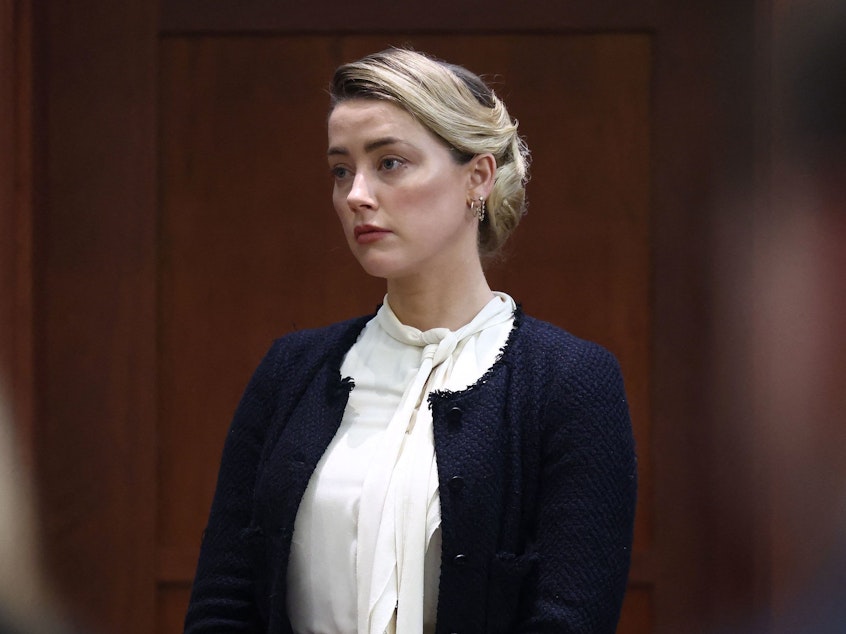The Depp-Heard case places a spotlight on relationships and intimate partner violence

Former couple Johnny Depp and Amber Heard are engaged in a legal battle over public comments about their relationship. Although this is not a criminal case, intimate partner violence is a key character in this trial.
Depp is suing Heard for $50 million over a op-ed she wrote in The Washington Post claiming she defamed him.
With the high-profile nature of the plaintiff and defendant, Depp and Heard are not only arguing their case in front of a judge, but also in the court of public opinion.
"None of us have ever actually been proactively taught about the difference between healthy and unhealthy relationships," Katie Hood, chief executive officer of One Love Foundation, told All Things Considered on April 24. "And what One Love is trying to do is create awesome learning materials."
Hood's organization provides education to young people on healthy and unhealthy relationships. Domestic violence impacts everyone, not just women.
Sponsored
"The stats show that over 1 in 3 women, nearly 1 in 3 men and 1 in 2 transgender or non-binary people will be in an abusive relationship in their lifetime," Hood told NPR's All Things Considered.
Not everyone experiences the same risk level though, with some demographics more at risk than others, Hood said. Black and Indigenous women face higher rates of abuse, and women face higher rates of physical and sexual abuse.
Depp has gained a wealth of supporters on his behalf, but experts say there is more to the story. In an interview with All Things Considered on May 2, Kellie Lynch, domestic violence researcher at the University of Texas at San Antonio, shared her insights.
First, the terms abusers and abuse are not synonymous with violence.
"Violence we think of as intentional harm toward the other," Lynch said. "That may or may not be abusive. There might be bidirectional violence or they're both violent towards one another. That doesn't mean the same thing as mutual abuse."
Sponsored
Lynch said the perhaps the more appropriate term might be "bidirectional violence."
"Just because someone might be violent towards the other person in the relationship doesn't mean that they were necessarily the primary abuser or aggressor," Lynch said. "An example of why that might occur — if someone who was physically violent towards their abuser in self-defense or if they were triggered by something, the abuse that occurred in the relationship."
There also may be biases clouding how Depp and Heard are both being seen in this case.
"Any time you have men versus women, you might see double standards. You might see biases. You're going to see, definitely, differences in how behavior is interpreted," Lynch said.
If you or someone you know is a victim of domestic abuse, you can reach the National Domestic Violence Hotline at 800-799-7233. [Copyright 2022 NPR]



